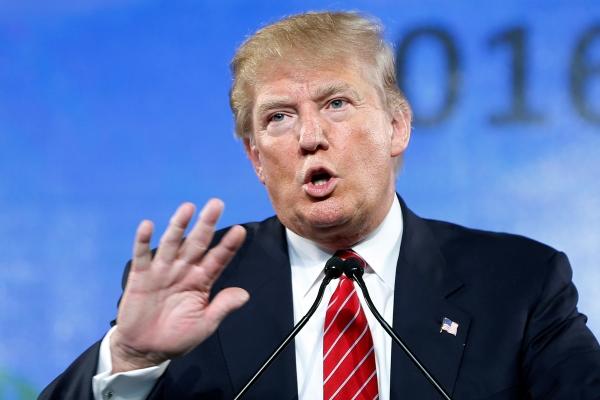Republican presidential frontrunner Donald Trump reversed course on the issue of torture Friday when said he would not order the military to disobey the law by abusing prisoners to gain intelligence.
After arguing to the contrary for months on the campaign trail, Trump said he had come to the recognition that the U.S. was bound by "laws and treaties" and he also would be.
If elected president, "I will not order a military officer to disobey the law. It is clear that, as president, I will be bound by laws just like all Americans and I will meet those responsibilities," Trump said in a statement to The Wall Street Journal.
Torture is against the Uniformed Code of Military Justice, the law of armed conflict and the Geneva Conventions, and is also proscribed by various military Field Manuals, including one co-authored by retired Army Gen. David Petraeus.
However, at the Republican presidential debate Thursday night in Detroit, Trump appeared to double down on his advocacy for torture, which he had never clearly defined while campaigning but had said repeatedly included methods "a hell of a lot worse than waterboarding." Waterboarding has also been banned as an interrogation method by President Barack Obama.
When reminded that torture was against the law, and that service members would be duty bound to disobey an unlawful order to torture, Trump shot back, "I've always been a leader. I've never had any problem leading people. If I say do it, they're going to do it. That's what leadership is all about."
His statement Friday amounted to a complete reversal.
Trump said that as president he would "use every legal power that I have to stop these terrorist enemies. I do, however, understand that the United States is bound by laws and treaties and I will not order our military or other officials to violate those laws and will seek their advice on such matters."
His latest remarks contrasted with what he said on torture in South Carolina last month: "Don't tell me it doesn't work -- torture works," he said at the time. "OK, folks? Torture -- you know, half these guys [say]: 'Torture doesn't work.' Believe me, it works. OK?"
Trump's critics have stressed that debates on whether torture "works" missed the point -- it is against the law, demeans those who do it, and would put U.S. troops in the same category as their enemies.
Last week, Joint Chiefs Chairman Gen. Joseph Dunford said in testimony to the Senate Armed Services Committee that torture went against the "American values" embodied by the U.S. military.
Dunford did not respond directly to questions on Trump's torture remarks but said "We should never apologize for going to war with the values of the American people."
In a letter Thursday published by "War On The Rocks," 65 Republican national security experts, many of them members of the administration of former President George W. Bush, said that Trump's "embrace of the expansive use of torture is inexcusable."
Despite the criticism, Trump's initial stance on torture appeared to have strong support among voters. A Pew Research Center poll last year showed that 73 percent of Republicans favored torture to gain intelligence, compared to 46 percent of Democrats.
-- Richard Sisk can be reached at Richard.Sisk@Military.com.





























